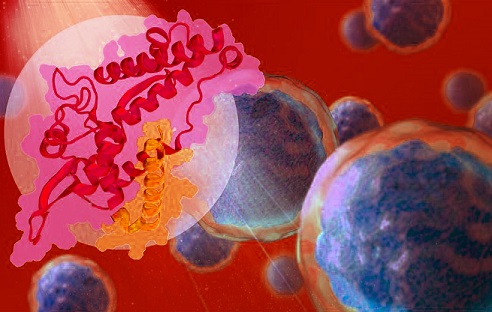Nikhil Prasad Fact checked by:Thailand Medical News Team Dec 10, 2024 1 year, 1 month, 1 week, 2 days, 13 hours, 8 minutes ago
Medical News: Researchers from Meharry Medical College in Nashville, Vanderbilt University-USA, and Cambridge University-UK have shed new light on the protein fetuin-A (also known as alpha-2-Heremans-Schmid glycoprotein or Ahsg) and its role in cancer. The findings outline how this protein influences the growth and spread of various cancers, including liver, breast, prostate, colorectal, and brain tumors. This
Medical News report explores the study and its implications for cancer research and treatment.
 Fetuin A and Its Role in Tumor Growth and Spread
What is Fetuin-A?
Fetuin A and Its Role in Tumor Growth and Spread
What is Fetuin-A?
Fetuin-A is a multifunctional protein produced by the liver and released into the bloodstream. It plays roles in processes like mineralization, inflammation, and tumor growth. Scientists have found that fetuin-A can promote tumor growth, invasion, and metastasis by interacting with cell signaling pathways and influencing cellular adhesion and movement.
How Fetuin-A Fuels Cancer
Fetuin-A impacts cancer progression in multiple ways. It activates the phosphatidylinositol 3 (PI3) kinase/Akt pathway, a signaling mechanism that promotes cell survival, growth, and proliferation. This pathway is crucial for the rapid growth of cancer cells. Additionally, fetuin-A mimics certain receptors in the body, allowing it to modulate other growth signaling pathways.
The protein also plays a pivotal role in cancer metastasis. It influences tumor cells to release exosomes - tiny vesicles that help cancer cells communicate and spread. These exosomes are rich in substances like histones and plasminogen, which aid cancer cells in sticking to new sites in the body and promoting further growth. Fetuin-A’s interaction with Toll-like receptor 4 (TLR4) also enhances the invasive abilities of cancer cells.
Specific Cancer Implications
Fetuin-A’s role varies among different cancer types. For instance:
-Liver Cancer: While fetuin-A levels in the bloodstream decrease in liver cancer patients, its fucosylated form - a modified version of the protein - helps differentiate liver cancers like hepatocellular carcinoma from other liver diseases.
-Breast Cancer: The protein boosts breast cancer cell adhesion, spreading, and metastasis, especially to bones, liver, lungs, and brain.
-Prostate Cancer: Prostate tumors with high levels of fetuin-A are more aggressive and likely to spread, correlating with poorer outcomes for patients.
-Brain Tumors: In glioblastomas, fetuin-A supports tumor growth and invasion. Blocking its interaction with receptors like TLR4 has shown promise in reducing tumor spread in experimental models.
Insights for Diagnosis and Treatment
The researchers highlight the potential of fetuin-A as a diagnostic biomarker and therapeutic target. Its role in releasing exosomes and driving 3D tumor gr
owth positions it as a crucial player in cancer progression. Fetuin-A’s altered forms, such as its glycosylated versions, could help distinguish between cancer types and stages.
One therapeutic approach involves using inhibitors like CLI-095 to block fetuin-A’s interaction with receptors, which has shown success in laboratory settings. Additionally, targeting fetuin-A’s production within tumors could help slow cancer growth and spread.
The Bigger Picture
The study’s findings underscore the complexity of fetuin-A’s role in cancer. While it promotes tumor growth and invasion in most cases, its effects vary across cancers and stages. For example, fetuin-A appears to have protective roles in certain liver conditions but supports cancer progression in others. This duality highlights the need for further research to fully understand its mechanisms.
Conclusion
The insights from this study provide a deeper understanding of how proteins like fetuin-A contribute to cancer’s growth and dissemination. As a key player in signaling pathways, cellular adhesion, and metastasis, fetuin-A represents both a challenge and an opportunity in oncology. Future studies should focus on how to effectively target fetuin-A to develop new diagnostic tools and treatments.
The study findings were published in the peer-reviewed International Journal of Molecular Sciences.
https://www.mdpi.com/1422-0067/25/23/12918
For the latest Cancer News, keep on logging to Thailand
Medical News.
Read Also:
https://www.thailandmedical.news/news/scientists-in-china-find-that-fasting-helps-in-combating-cancer
https://www.thailandmedical.news/news/decoding-the-role-of-p53-in-cancer
https://www.thailandmedical.news/articles/cancer
